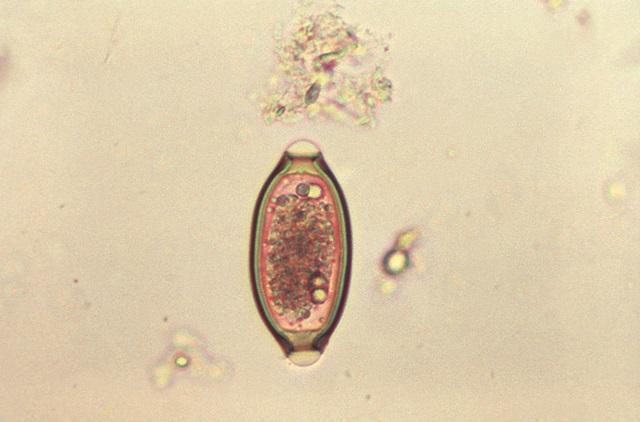A high-fat diet could help the body get rid of deadly parasitic worms that reside in the large intestine, according to a new study.
Lancaster University scientists examined how a high-fat diet could induce resistance against helminth infection in a study published in the journal Mucosal Immunology.
According to the team, gastrointestinal worm infections cause morbidity and socio-economic loss in deprived communities. They sought to determine whether the diet could provide immune-regulated protection against the infection.
The researchers focused on the parasite Trichuris trichiura, a soil-transmitted helminth affecting millions of people worldwide. Though its infection is rarely fatal, the whipworm is known to cause severe symptoms, including abdominal pain, diarrhea, intestinal bleeding, anemia and nutritional deficiencies.
In developing countries with poor sanitation, whipworm infection is common. At the same time, obesity has become a growing concern in these nations due to the availability of highly processed foods with high levels of sugar and fat. The team decided to work on determining the relationship between the two in mice experiments.
For the mice models, the team had to use Trichuris muris, a parasite similar in morphology and genome to T. trichiura. It also stays in the same intestinal niche as its human parasite counterpart. Some of the mice were subjected to a high-fat diet to check its effect on the parasitic infection.
After analyzing data, the researchers reported the high-fat diet-induced expulsion of T. muris in mice. According to them, the high-fat diet allowed the immune system to eliminate the parasite.
“We were quite surprised by what we found during this study. High-fat diets are mostly associated with increased pathology during disease. However, in the case of whipworm infection this high fat diet licenses the T-helper cells to make the correct immune response to expel the worm,” study co-lead Dr. John Worthington from the Department of Biomedical and Life Science at Lancaster University said in a press release.
“It was really fascinating that simply altering the diet completely switched the immune response in the gut from one that fails to expel the parasite, to one that brings about all the correct mechanisms to eliminate it,” co-lead Prof. David Thornton from the University of Manchester added.
Aside from the fact that the experiment was conducted in mice, the researchers also warned that their findings do not necessarily suggest that following a high-fat diet would be beneficial to the health, parasite-wise. Worthington pointed out that weight loss was also found to expel a different gut parasite.
“So these results may be context specific, but what is really exciting is the demonstration of how diet can profoundly alter the capacity to generate protective immunity, and this may give us new clues for treatments for the millions who suffer from intestinal parasitic infections worldwide,” he explained.
According to the Centers for Disease Control and Prevention (CDC), an estimated 604-795 million people in the world are infected with whipworms. Infection is more common in areas with tropical weather and poor access to good hygiene and proper sanitation. Cases have been reported in the southern United States.
















